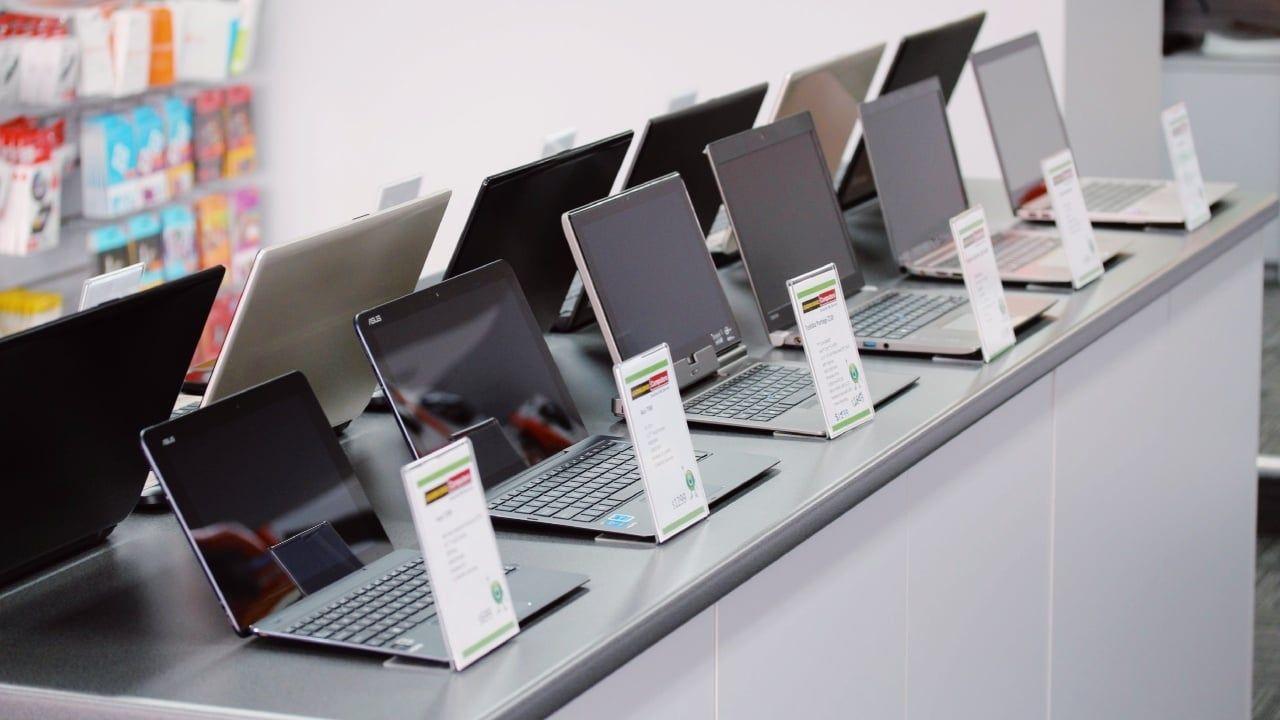PC Market Surges in Q2 2025: AI PCs, Windows 11 Adoption, and Geopolitical Shifts Drive Growth
2 Sources
2 Sources
[1]
PC market grows in Q2, but tariffs and trade fears signal turbulence ahead
Serving tech enthusiasts for over 25 years. TechSpot means tech analysis and advice you can trust. In brief: Fear, uncertainty, and tariffs are threatening to negatively affect the PC market in the next few months. A recent report highlights the trials and tribulations of the PC business, portraying a never-ending adjustment effort in response to quickly shifting business conditions and Donald Trump's actions. Counterpoint Research's preliminary data show that PC shipments grew 8.4 percent year-over-year during the second quarter of 2025. The market experienced the highest yearly increase since 2022, when the pandemic had a significant effect on consumer demand for new hardware and PC systems. However, things are much more complex and chaotic today. Major factors behind the latest growth in PC shipments include the quickly approaching end of official Windows 10 support, early adopters of AI PC systems, and commercial demand caused by Trump's tariffs. Many OEMs are now deeply in their "wait-and-see" approach to business, CR said, because the new US administration keeps using import tariffs as a looming threat against the entire world. The increase in shipments was especially driven by the commercial segment of the market, with large enterprises and public organizations upgrading their PC fleets based on Windows 10. Windows 11's popularity is finally surging four years after the OS debuted, just as Microsoft stops supporting the old system in October 2025. Meanwhile, the consumer segment showed mixed signals with more moderate growth. Counterpoint's data shows Lenovo as the current leader in the PC business, with 25 percent of total quarterly shipments and a 15 percent growth compared to the previous year. US manufacturers HP and Dell are in second and third places with 20.9 percent and 14.5 percent of the market, respectively, though only the former experienced growth (5 percent) while the latter lost a couple of percentage points. Apple is in fourth place with 8.9 percent of the market and a 13 percent YoY growth, which CR attributes to "solid" MacBook sales thanks to the latest M4 series. Asus, which shipped 6.8 percent of the systems during the quarter, experienced the largest growth (18 percent) among the major global PC manufacturers. According to Counterpoint Senior Analyst Minsoo Kang, uncertainty related to Trump's tariffs will likely cause weaker PC shipment results during the second half of 2025. Thanks to the increasing demand for AI PCs and other factors, the market should provide much better results in 2026. Half of the laptops shipped next year and onward will be AI-enabled systems, which is widely expected. Another significant shift in the PC market will likely be related to geopolitics and logistics. The manufacturing business is still heavily focused on China, but PC vendors, original design manufacturers, and providers of electronics manufacturing services are making a major effort to bring their production capabilities to other countries. Vietnam, India, and Mexico are the most likely alternatives to China, though Trump's unpredictable approach could negatively affect these markets in the future.
[2]
Why everyone is suddenly buying new computers again
The global PC market grew by 8.4% year-over-year in Q2 2025, marking its highest annual growth since 2022 PC shipments increased by 8.4 percent year-over-year in the second quarter of 2025, marking the highest annual growth since 2022, according to preliminary data from Counterpoint Research. This growth was primarily influenced by the impending end of Windows 10 support, the early adoption of AI PCs, and specific commercial demands linked to tariffs. The increase in shipments was driven mainly by the commercial sector, as large enterprises and public organizations initiated upgrades of their Windows 10-based PC fleets. Windows 11 has seen a surge in adoption as Microsoft prepares to cease support for Windows 10 in October 2025. The consumer segment, by contrast, exhibited more moderate and varied growth. Lenovo led the PC market in Q2 2025, capturing 25 percent of total quarterly shipments and achieving a 15 percent year-over-year growth. HP secured the second position with 20.9 percent of the market share, experiencing a 5 percent growth. Dell held the third spot with 14.5 percent of the market, though it recorded a decline in shipments. Apple ranked fourth, holding 8.9 percent of the market and showing a 13 percent year-over-year growth, attributed to robust sales of its MacBook M4 series. Asus exhibited the most significant growth among major manufacturers, with an 18 percent increase in shipments, accounting for 6.8 percent of systems shipped during the quarter. Would you replace your desktop with a Microsoft mini AI PC? Minsoo Kang, a Senior Analyst at Counterpoint, indicated that the uncertainty surrounding tariffs is expected to result in weaker PC shipment figures in the latter half of 2025. However, the market is projected to improve significantly in 2026, driven by an increasing demand for AI-capable PCs. Projections suggest that approximately half of all laptops shipped from 2026 onwards will be AI-enabled systems. In addition to market dynamics, a notable shift is occurring in PC manufacturing locations. While China remains a primary production hub, PC vendors, original design manufacturers (ODMs), and electronics manufacturing services (EMS) providers are actively diversifying their manufacturing capabilities to other countries. Vietnam, India, and Mexico have emerged as key alternative locations, reflecting a broader effort to mitigate geopolitical and logistical risks associated with concentrated manufacturing.
Share
Share
Copy Link
The global PC market experienced an 8.4% year-over-year growth in Q2 2025, driven by Windows 10 end-of-life, AI PC adoption, and commercial demand. Lenovo leads the market, while geopolitical factors and manufacturing shifts shape the industry's future.
PC Market Experiences Significant Growth in Q2 2025
The global PC market has shown remarkable resilience, with shipments growing by 8.4% year-over-year in the second quarter of 2025, according to preliminary data from Counterpoint Research. This surge marks the highest annual growth since 2022, when the pandemic significantly impacted consumer demand for new hardware
1
2
.Key Drivers of Growth
Several factors have contributed to this unexpected market expansion:
-
Windows 10 End-of-Life: With Microsoft set to end support for Windows 10 in October 2025, large enterprises and public organizations are upgrading their PC fleets. This has led to a surge in Windows 11's popularity, four years after its initial release
1
. -
AI PC Adoption: Early adopters of AI-enabled PC systems have contributed to the market growth. Projections suggest that approximately half of all laptops shipped from 2026 onwards will be AI-enabled
2
. -
Commercial Demand: Specific commercial demands linked to tariffs have also played a role in driving shipments, particularly in the business sector
1
2
.
Market Leaders and Performance

Source: TechSpot
The PC market landscape has seen some interesting shifts:
- Lenovo leads with 25% of total quarterly shipments and a 15% year-over-year growth
1
2
. - HP holds second place with 20.9% market share and 5% growth
1
2
. - Dell ranks third with 14.5% market share but experienced a slight decline in shipments
1
2
. - Apple secured the fourth position with 8.9% market share and 13% growth, attributed to strong MacBook M4 series sales
1
2
. - Asus showed the most significant growth among major manufacturers at 18%, accounting for 6.8% of systems shipped
1
2
.
Related Stories
Geopolitical Influences and Manufacturing Shifts
The PC industry is navigating complex geopolitical waters:
- Uncertainty related to tariffs, particularly those imposed by the US administration, is causing concern among manufacturers
1
. - PC vendors, original design manufacturers (ODMs), and electronics manufacturing services (EMS) providers are diversifying their production capabilities beyond China
1
2
. - Vietnam, India, and Mexico have emerged as potential alternative manufacturing hubs, reflecting efforts to mitigate geopolitical and logistical risks
1
2
.
Future Outlook
While the market shows promise, some challenges lie ahead:
- Counterpoint Senior Analyst Minsoo Kang predicts weaker PC shipment results in the second half of 2025 due to tariff-related uncertainties
1
2
. - However, the increasing demand for AI PCs is expected to drive better results in 2026
1
2
. - The consumer segment shows mixed signals with more moderate growth compared to the commercial sector
1
2
.
As the PC market continues to evolve, the interplay between technological advancements, geopolitical factors, and changing consumer needs will shape its trajectory in the coming years.
References
Summarized by
Navi
[2]
Related Stories
Global PC Shipments Surge 6.7% in Q1 2025 Amid US Tariff Uncertainty and AI PC Demand
25 Apr 2025•Business and Economy

AI PCs Fail to Boost Global PC Market in Q3 2024 Despite Industry Hype
10 Oct 2024•Technology

Windows 10 End-of-Life, Not AI PCs, Driving 2025 Laptop Market Growth
28 Nov 2024•Technology

Recent Highlights
1
ByteDance's Seedance 2.0 AI video generator triggers copyright infringement battle with Hollywood
Policy and Regulation

2
Demis Hassabis predicts AGI in 5-8 years, sees new golden era transforming medicine and science
Technology

3
Nvidia and Meta forge massive chip deal as computing power demands reshape AI infrastructure
Technology





